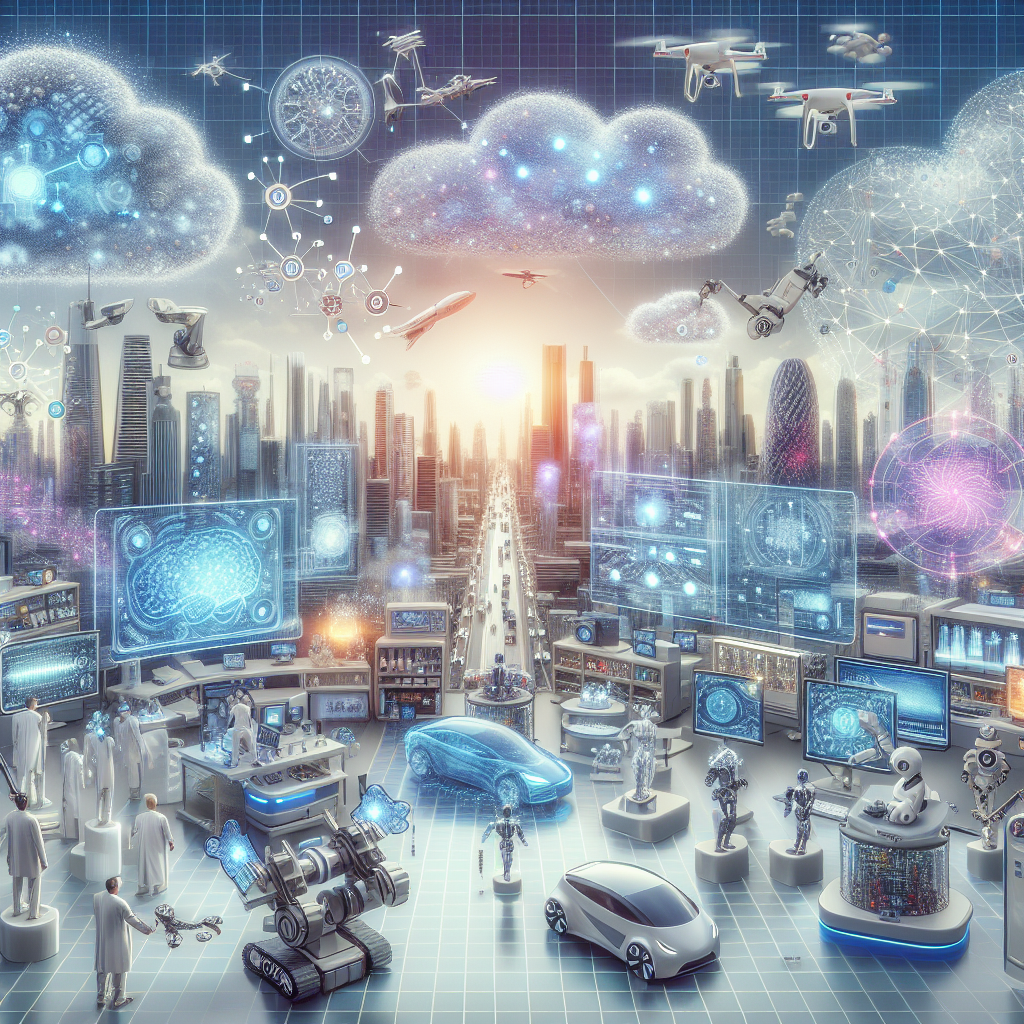**The Future of AI: Predictions for the Next Decade**

**1. Enhanced Personalization and User Experience**
One of the most immediate impacts of AI in the coming decade will be the unprecedented levels of personalization it will offer. AI algorithms are becoming more sophisticated in analyzing data to understand user behaviors, preferences, and needs. This implies that in fields such as retail, entertainment, and even healthcare, users will receive highly tailored recommendations and services. For example, AI could transform the patient experience by providing personalized health care plans based on individual genetic information and lifestyle data.
**2. Integration into Daily Life and Smart Environments**
AI is poised to become an intrinsic part of our daily environments. Smart homes, equipped with integrated AI systems, will automate routine tasks and operate in an energy-efficient manner, improving comfort and sustainability. Voice-activated assistants and IoT (Internet of Things) devices will seamlessly interact, creating a connected living space that anticipates and responds to the needs of its inhabitants.
**3. Revolutionizing Healthcare and Medical Research**
In healthcare, AI will revolutionize diagnostics, treatment plans, and patient care monitoring. AI-driven diagnostic tools are already showing proficiency in identifying diseases such as cancer and neurological disorders at stages earlier than human practitioners can. AI will also streamline drug discovery processes, reducing the time and cost associated with bringing new treatments to market. Predictive analytics will enable preventive healthcare, catching potential health issues before they become critical.
**4. Autonomous and Intelligent Transportation**
The next decade will witness significant strides in autonomous transportation. Self-driving cars will likely become more prevalent, transforming urban mobility and reducing traffic congestion and accidents. AI will also enhance public transportation systems, optimizing routes and schedules to improve efficiency. Alongside these advancements, regulatory frameworks and ethical considerations will need to evolve to address the complexities of autonomous vehicles.
**5. Ethical and Regulatory Developments**
As AI continues to advance, ethical considerations and regulatory frameworks will become increasingly vital. There will be a strong focus on ensuring the responsible use of AI, including data privacy, fairness, and transparency. Governments and international bodies will work on establishing standards and regulations to manage the impact of AI on employment, security, and fundamental rights.
**6. Expansion of AI in Education**
AI will transform education by offering personalized learning experiences that cater to each student’s pace and learning style. Intelligent tutoring systems will identify knowledge gaps and provide personalized recommendations, making education more accessible and effective. Moreover, AI can assist educators by automating administrative tasks, allowing them to focus more on teaching and student engagement.
**7. Collaboration Between Humans and AI**
Rather than replacing humans, AI will increasingly work alongside them, augmenting human capabilities and enhancing productivity. In the workplace, AI will take over mundane and repetitive tasks, freeing humans to engage in more creative and strategic activities. This symbiotic relationship will foster a new era of innovation and efficiency across all sectors.
**Conclusion**
The next decade promises to be a transformative period for AI, with profound implications for nearly every facet of society. While AI’s potential is vast, navigating this landscape will require careful consideration of ethical, regulatory, and social impacts. By fostering responsible AI development, we can harness its revolutionary capabilities to improve lives, drive economic growth, and build a smarter, more inclusive future.
